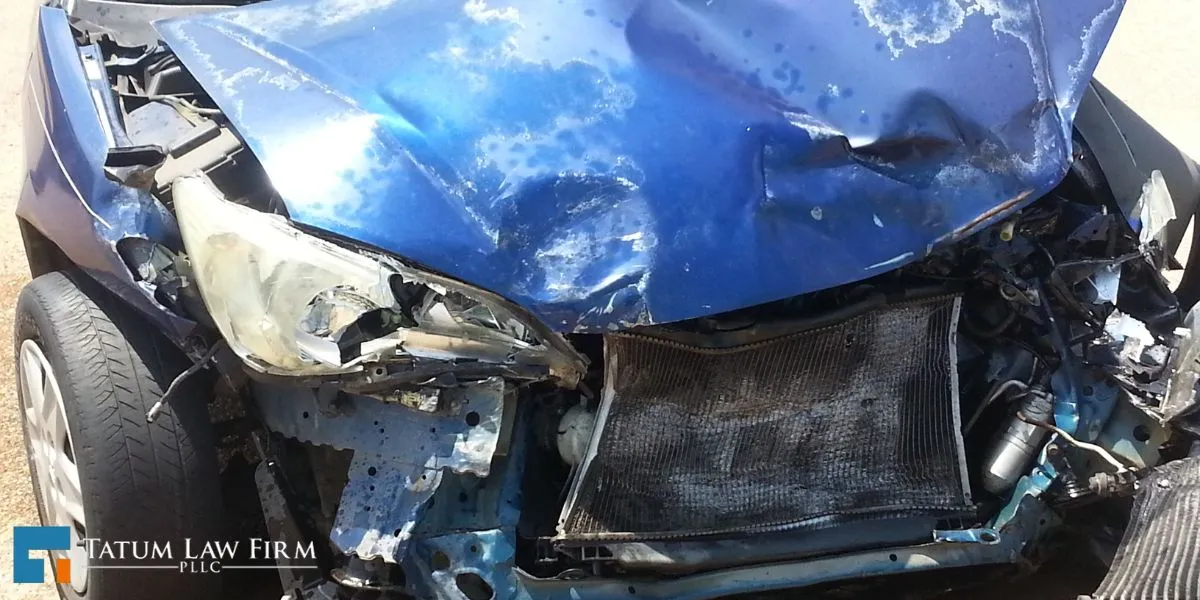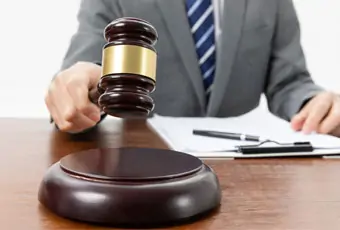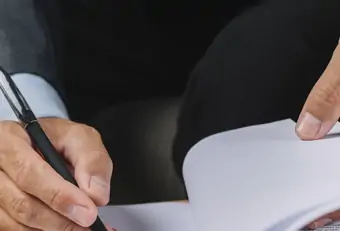Charlotte Car Accident Lawyer
Charlotte Car Accident Attorney
When you spend day in and day out driving, whether it is to and from work or running errands around town, it is easy to become desensitized to the risk associated with it. However, a car accident can abruptly remind you of the dangers you expose yourself to every time you travel in a car.

In some cases, you might suffer that danger through no fault of your own. When you are injured in a car accident, there are a number of costs associated. Financial costs like medical bills and missed wages are paired with more emotional and psychological costs like pain and suffering.
The burden of these costs should fall upon those who were at fault for the accident, or more specifically, their insurance company. The problem, though, with insurance companies is that they generally don’t like to pay out everything they owe.
After all, they are in the business of making a profit, and what they pay you works against their bottom line. That means to get what you are owed often requires putting pressure on these companies either in negotiation or in court. At the Tatum Law Firm, our Charlotte car accident lawyers help our clients seek what they’re owed from a position of strength. If you are dealing with any car-related personal injury in Charlotte, we are here to support you through the process.
Types of Car Accidents in Charlotte, NC
When you think of a car accident, a pretty standard two-car accident might come to mind — something like a fender-bender, a crash at an intersection, or even a head-on collision. While those are the majority of cases, accidents involving other types of vehicles, as well as situations like a defective part potentially making a vehicle uncontrollable, can also occur.
The variations in the kinds of accidents can have some effect on who could be held liable and how your lawyer will investigate and argue the claim in Charlotte, NC.
Some of these potential car accident types include:
- Truck Accidents: Truck accidents in Charlotte can be some of the most dangerous accidents on the road. In these cases, the employer of the driver may be held liable, as companies are often responsible for the actions of their employees.
- Drunk Driving Accident: Drunk driving accidents in Charlotte can have disastrous results, and they are one of the few situations where punitive damages — which are aimed at punishing the at-fault party — may be awarded for a car accident.
- Bicycle Accident: If there is an accident between a bicycle and a car, it could leave the cyclist with some very serious injuries. The driver of the vehicle is likely to be liable for the damages the cyclist is seeking.
- Accident With a Commercial Driver: Accidents with commercial drivers could involve trucks, delivery drivers, ride-sharing drivers, or other forms of driving for an employer. Because employers are often liable for the actions of their employees, this could result in a claim against the employer of the driver in addition to, or instead of, a claim against the driver.
This is often particularly the case if something about the employer’s policies created an increased risk of an accident, such as having unreasonable delivery timing expectations or not providing enough support for their drivers.
Who Could Be Liable in a Charlotte Car Accident?
Many people might believe that only one of the drivers involved in an accident can be held liable for a car accident. That isn’t the case. To be held liable, a person or entity must be at fault for an accident that results in injuries.
Most of the time, this may be one of the drivers involved, but that doesn’t happen in every situation. Car accidents could be triggered by a variety of causes, and that can lead to a wide range of possible defendants in a claim. One of the things that your car accident lawyer will do is examine the accident from many different angles to understand who is most likely to be held at fault.
Some of the possible defendants include:
- Another driver directly involved in the accident: Most of the time, the defendant is going to be another driver who caused the accident by their recklessness, negligence, or general lack of following the rules of the road. Something like drunk driving, speeding, or running a red light can lead to an accident.
- Another driver not directly involved in the accident: Sometimes, an accident is caused by a driver who wasn’t involved in the accident directly. Whether through ignorance or recklessness, a driver can cause other drivers on the road to have to attempt to take evasive maneuvers.
It could be that in evading an accident with one car, a driver ends up in an accident with another. However, it is not necessarily that driver who should be to blame. Instead, it would be the first driver who created the need for an evasive move.
- A driver’s employer: If you are in an accident with a commercial vehicle, such as a truck or a delivery driver, then the liable party may be the employer. There are several things an employer could do that could create a situation where a driver is more likely to drive unsafely or get into an accident.
For instance, they could have unreasonable delivery schedules, leaving a driver to be a bit too aggressive in their pursuit of meeting deadlines. They could also fail to maintain the vehicle or properly secure freight. If you are involved in an accident with a commercial vehicle, your lawyer will take a close look at the employer to see if something they did led to the accident.
- The manufacturing of a part: There are some accidents that are caused by the failure of a part. For instance, vehicle manufacturers have had acceleration pedals that get stuck, leading to an accident. In these cases, it is the manufacturer of the part that failed who may be found liable for the accident.
- The installer of a part: Similar to a failed part, an accident could occur because a part has been incorrectly installed or a repair was improperly done. If it was the shop that made the error, they could be held liable.
- Government entities that are responsible for the roads: There are some accidents that are caused by the road itself. For instance, a malfunctioning traffic light could lead to a collision or damage to the road could lead to an accident. If this is the case, then it could be the government entity responsible for the road that is the correct party to file a claim against.
Proving Negligence in Charlotte Car Accidents
A car accident claim is ultimately a personal injury claim. This means proving fault, or negligence, for a car accident will follow the same process as any standard personal injury claim. Only after fault has been established will you be able to seek damages that cover the costs coming from that accident.
To prove fault for an accident, a variety of different sources of evidence can be called upon, including police reports, photos and video, and eyewitness testimony. In some cases, it may even be relevant to call expert witnesses to testify on their understanding of the accident and who may be at fault. Whatever evidence is used, though, the court must be persuaded of three things.
There Was a Duty to Care
The first element of negligence that must be shown is that, in the given circumstance, the defendant had a duty to care. What this means is that the defendant must reasonably be seen as needing to take into consideration how their actions and behavior might affect the people around them. They had a duty to not act recklessly and to take reasonable precautions to protect others who could be impacted by their actions.
In the case of car accidents, this is generally not a difficult thing to establish. Those operating a vehicle have a duty to care how their use of the vehicle might impact others. The same is true of others involved in the operation of motor vehicles, whether they be employers of drivers, manufacturers of vehicles and parts, or the government entities responsible for building and maintaining the roads.
A Breach of Duty Occurred
The second element that’s necessary to prove negligence is to show that the defendant committed a breach of duty. This means that they, in some way, failed to live up to the duty that was expected of them. This could be through an action they took, such as driving recklessly, or an action they failed to take, such as not properly signaling when turning or changing lanes.
Generally, a breach of duty means the defendant failed to act as a reasonably careful person would have given the same set of circumstances. With a car accident, things like failing to follow the rules of the road or generally dangerous driving could be a way of establishing a breach.
In other situations, a breach of duty could be failing to manufacture a functional part or vehicle, not properly installing a part, setting unreasonable expectations of driver employees, or failing to maintain roads, signs, or traffic lights.
The Breach of Duty Led to the Accident
The final component of proving fault is demonstrating that the breach of duty directly led to the injuries suffered. This typically involves drawing a causal line from the breach through to injury. This makes this final element of negligence a two-part process in most cases.
First, it must be shown how the breach led to an accident. This might seem like a given, but that’s not always the case. For instance, if a car speeds through an intersection and they are slammed into by another vehicle running a red light, the first driver may have committed a breach of duty, but it can hardly be considered to be the cause of the accident. Your car accident lawyer must be able to demonstrate how the breach directly led to the accident.
Second, it must be demonstrated that the accident led directly to the injuries that were suffered. This is why it is crucial to get a medical examination as quickly as you can after the accident. The injuries also must not have been present before the accident. There is, though, some gray area around the aggravation of a prior injury.
Damages You Can Collect in Charlotte Car Accident
When you are awarded compensation in a car accident claim, it is known as damages. These are meant to cover the costs that a person incurs because of their injuries. To prove that you should receive damages for a particular cost, you must prove that it comes from the injury. There is an extension of the causal line that is established by proving negligence.
Once that causal line connects from the breach of duty to the accident to the injury and to the costs associated with the injury, full liability is established, and damages can be awarded. This is why you must keep good track of the doctor’s diagnosis, medical bills, and anything else that can prove the costs you are accruing because of the injuries.
In most car accident cases, the damages awarded will be grouped into two categories:
- Economic Damages: If a cost is easily calculable, then it falls into economic damages. What makes these damages easily calculable is that there is typically some kind of monetary price or fee involved.
In the case of a car accident, this often includes things like medical bills, lost wages from missing work, the costs to repair a vehicle, or even money for a replacement vehicle if needed. If the injury is serious enough, this could also include future costs as well.
Costs like future medical expenses, future physical therapy, or lost earning capacity if the injuries prevent someone from returning to the same level of work are all included under the umbrella of economic damages.
- Non-Economic Damages: There are also expenses associated with an accident that are more psychological and emotional in nature. They aren’t particularly easy to calculate and include things like pain and suffering, loss of enjoyment in life, depression and anxiety, or the effects of losing a limb or the use of a limb.
The money, of course, is not something that can directly solve any of these things. However, it can help with getting some forms of treatment and minimize stresses in other areas of life, leaving space for managing these challenges.
There is another kind of damages that could be awarded, although it is not common in the case of a car accident. If the court believes there was something egregious or malicious about what the defendant did, the court may award punitive damages.
These damages are meant to act as a punishment for the behavior of the defendant and serve as a deterrent against conducting that behavior in the future. In a car accident case, for instance, punitive damages could be awarded if the driver was drunk or driving particularly recklessly.
It’s also possible that some kind of corporate negligence might lead to punitive damages. Examples might include trying to cover up a defect that led to an accident or having wildly unreasonable expectations for deliveries.
What Is Pure Contributory Negligence in Charlotte, North Carolina?
One of the more challenging aspects of a car accident claim in North Carolina is the legal doctrine of pure contributory negligence. There are some cases where both parties may share the blame for an injury. In most states, if the plaintiff is found to be 20% at fault, that means they can only receive 80% of the damages they requested. This is not how it works in North Carolina.
If the plaintiff in a personal injury case, including car accidents, is found to have any fault at all in North Carolina, then they are prevented from recovering any damages. This means in any car accident in which a driver shares even just 1% of the fault, they are unable to find restitution.
This legal doctrine is certainly a hurdle that must be prepared for in these claims. Working with a quality legal team is essential as they can prepare for the kinds of details the defendant might use to try and prove the plaintiff’s fault.
It’s worth noting that when making this argument, the burden of proof is shifted to the defendant as they must be able to prove the elements of negligence that were previously described. Your lawyer must be prepared to make the case for the negligence of the other party while defending against claims that you were negligent.
While pure contributory negligence can be a challenge for car accident claims in North Carolina, it doesn’t make winning a claim impossible. It just means there is a little more preparation involved and a little more caution required. Claims of plaintiff negligence, though, can often be fought back against and keep your right to collect damages protected.
What Is the Statute of Limitations in Charlotte, North Carolina?
The time to file a claim in a personal injury case is finite. The statute of limitations, which determines how long after an injury occurs that you can file a claim, is three years. The reasoning behind this kind of limit is that over time, evidence can become harder to find and less reliable. For instance, witness testimony is not as reliable as time passes.
There can be some variation on the three-year limit based on circumstances like the party a claim is being filed against, when the injuries were discovered, or if the victim was a minor. It is generally not a good idea to rely on that possibility, though. The sooner you contact a Charlotte car accident lawyer, the better. It gives them more time to investigate your claim.
How a Lawyer Can Help With Your Car Accident Claim in Charlotte
Working with a skilled, experienced personal injury lawyer can sometimes be the difference between not getting a successful outcome or receiving what you’re owed. We have a firm grasp of what the court is looking for when arguing negligence and defending against accusations of contributory negligence. We can help frame your case in a way that puts forth a strong argument on your behalf.
One of the most important things we do for our clients is a thorough investigation of their car accidents. We must examine the situation to discover where liability exists. While it often is the other driver, it may be that another party is at fault. Attempting to find restitution from the wrong party could lead to a waste of time and money, so it’s critical that we identify the correct liable party from the start.
Part of our investigation process is gathering evidence regarding the accident. We try to identify two different kinds of evidence throughout the process. Some evidence will serve the purpose of establishing negligence on the part of the defendant.
Just as important, though, given that North Carolina is a pure contributory negligence state, is the evidence that serves to defend against a counter-argument of negligence on your part. We gather all the evidence and prepare to argue for your side and defend you as well.
During this process, we can negotiate on your behalf with the insurance company. There can be some benefits to not going to court and coming to an agreement with them instead. While the potential for a higher payout may exist with a successful court case, there is the risk that you might not get anything, even though there is good evidence on your side.
Anytime you leave anything in the hands of the court, there is a possibility they may rule against you. This risk is higher in a pure contributory negligence state, like North Carolina, where if you can be shown to have any fault at all, you may not be awarded any damages.
Sometimes, an acceptable settlement just isn’t a possibility. In these cases, it’s our job as lawyers to represent you through the personal injury claim process. This means putting together and filing the initial claim, as well as making the case for you in court if necessary.
We can present the argument for negligence and how the damages you’re seeking arose from that negligence. It also means defending you against claims of your own negligence in the accident. If it comes down to a court battle, we will fight hard to see you get everything that you deserve.
Picking a Car Accident Lawyer in Charlotte
Your chances at a successful claim are better when you work with a quality car accident lawyer. At the Tatum Law Firm, we believe we have the qualities that you want in an attorney representing you. We understand, though, that you aren’t just going to take our word for it and would need to sit down with us before you’re ready to trust us with your case.
With that in mind, here are a few characteristics of a personal injury lawyer that can be valuable when handling a claim:
- Knowledgeable: It should seem fairly obvious that you want a lawyer who is knowledgeable regarding personal injury law. It might be tempting to fall back on the idea that anyone who passed the bar and is a lawyer must be knowledgeable, but it is not always as simple as that. The law is something that gradually shifts over time, and you want to make sure you’re working with a lawyer who keeps up with the latest on what’s happening in their field.
- Experienced: You want to work with a lawyer who understands the law because they practice the law. There is a wide variety of nuances of the legal process that can’t be learned just by study. It is crucial to work with a lawyer who has experience in cases like yours.
- Creative: While there are some general techniques in the practice of law, every claim is unique. You need to work with a lawyer who can adapt to the unique nature of your situation and come up with a creative way of understanding and expressing details, information, and arguments as needed.
- Detail-Oriented: The way Hollywood portrays legal cases isn’t really how it works in real life. Most cases aren’t won by some kind of dramatic moment. Instead, cases are won as the result of many smaller details stacked on top of each other. You want to work with a lawyer who has an eye for these kinds of details and can make them work together to tell the larger narrative the court needs to hear.
- Someone You Trust: When you work with a lawyer, you are handing them a lot of responsibility, so it must be someone you can trust. You want to feel confident that the person you’ve chosen is going to do right by you and work for your interests.
Things You Should Do After a Car Accident in Charlotte, NC
How you handle things both immediately and in the aftermath of a car accident can be critical to the success of your case. Of course, depending on the extent of your injuries, there is only so much that can be done right after an accident.
However, to whatever extent you can or are able to have someone help, it can be valuable to your claim to do a few things after an accident.
Some of the things that you can help your claim include:
- Get a Medical Examination: The first thing to focus on after a car accident is your health. It’s always a good idea to get checked out by paramedics at the scene of the accident, even if you don’t think you need to or don’t think there is anything wrong.
You may be in a state of shock, and paramedics are trained to look for traumatic injuries. They may recognize a potential issue that isn’t evident to you. It is also a good idea to get a full medical examination later, even if the paramedics clear you at the scene. As the adrenaline leaves your system, you may become more aware of a potential injury than you were initially.
It’s critical, though, that you get the full medical examination relatively soon after the accident. Any delay may be used by the defendant to argue that the injuries either weren’t serious or came from some other activity.
- Documenting The Scene: A critical part of a successful car accident claim is having proper documentation. This process starts at the scene of the accident, if at all possible. You, or if you are too injured, someone you trust, should try to get photos or even some video of the accident scene. S
ome of the most important things to include are photos of any of the vehicles involved, including license plates and any damage, injuries that occurred, any relevant traffic signs, lights, or issues with the road. It can also be helpful to get a wide shot of the whole scene and include any skid marks on the road, as they help indicate what occurred.
Anything that you think may be essential in reconstructing what occurred could be helpful. It’s better to document more than is necessary and let a lawyer sift through all the information and discard what isn’t relevant to your case.
- Continuing Documentation: The importance of documentation extends beyond the scene of the accident as well. You are going to want to be sure you keep very thorough records of everything like doctor’s visits, diagnoses, medical bills, vehicle repair bills, property damage, missed work time, and any other costs that you are enduring as a direct result of the accident.
Again, this is the kind of thing where there is no harm in keeping too much information. Your attorney can look through everything you have gathered and determine what applies and what doesn’t.
- Gathering Contact Information: Your ability to accomplish this at the scene of an accident will be dependent on the severity of your injury. However, if at all possible, you will want to get contact information from several different people.
You will need the contact information of any other drivers who were involved as well. Don’t just rely on the police report for this information — make sure you get those details from them directly. Additionally, you will want to get the contact information of any eyewitnesses if there were any who saw what took place. Getting phone numbers and email addresses from these people may be very valuable to your case in the future.
- Be Careful About What You Say: It’s important to be cautious of how you talk about the accident. You shouldn’t lie, but you should avoid discussing too much about what happened. You may inadvertently say something that could be misconstrued as taking responsibility for the accident.
The defendant’s lawyers will be looking for anything like that, and it could be used against you. This is especially true when talking with any of the other drivers involved. Even more important is that you be extra cautious when talking with anyone from an insurance company.
Some of their questions may be leading, and they are adept at identifying anything that sounds like you taking the blame. It’s better to avoid saying much of anything and let your lawyer handle the situation.
- Contact the Tatum Law Firm: It’s a good idea to get in contact with a law firm that works with personal injury claims, like the Tatum Law Firm, soon after your accident. There are a number of things we can help with and begin working on as soon as you contact us.
We will investigate your case, and we can also help you avoid saying something to the insurance companies that you may later regret. We can also negotiate with them on your behalf. If needed, we can take your case to court and both argue for the liability of the defendant and defend you against claims of liability.
The Legal Team You Need Fighting for Your Compensation
We understand the stress that comes with someone causing you to sustain injuries in a car accident. You might have concerns about your injuries and the costs of medical care like physical therapy if needed. There are also vehicle repairs or replacements.
Additionally, if the injuries are serious, you might be uncertain about what the future is going to look like. One thing that you shouldn’t have to worry about is the financial aspect of all of these factors.
Sadly, though, the insurance companies who are responsible for providing compensation in these kinds of situations often fail to live up to their responsibilities. It is beneficial to have an attorney negotiating with them on your behalf to ensure you get the financial support you deserve.
At the Tatum Law Firm, we work with victims of car accidents to get them the compensation they need. This may mean negotiating a settlement with the insurance company with the credible threat of a claim being filed against them and the evidence found in our investigation.
However, if they are unwilling to come to an agreement that fairly compensates you, then we are prepared to challenge them in court. Given the details of North Carolina’s pure contributory negligence policy, you need a car accident lawyer who refuses to give an inch when it comes to your case. Contact us today for a consultation and to get started on the path to making your life after an accident easier.






